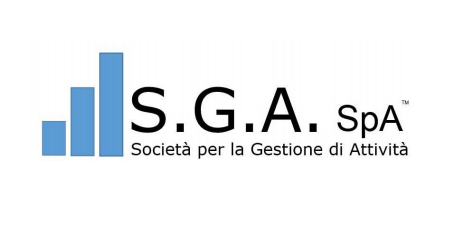 The fizz is back for the Italian NPL and Private Debt market. Important players in the sector are also changing strategy for enlarging their operative precinct.
The fizz is back for the Italian NPL and Private Debt market. Important players in the sector are also changing strategy for enlarging their operative precinct.
SGA (Società Gestione Attività), the company that belongs to the Italian Ministry of Economy and Finance (MEF), that handles 20 billion of problematic credits of Banca Popolare di Vicenza and Veneto Banca, outlined its 2019-2023 business plan (see here a previous post by BeBeez) which will move along three directories:
- Diversified and proactive management of problematic credits with the involvement of external professionals and firms;
- Proactive management of the going concern credits with the possibility to provide further credit to struggling businesses;
- Creation of innovative technology that will make the business model scalable.
Alessandro Rivera, the coo of MEF, in the chairman of SGA, while Marina Natale is the ceo. SGA aims to implement such business model for achieving a 35% ebitda margin and a 15% CET1.
Cogne Acciai Speciali, an Italian steel manufacturer, issued a 20 million of euros minibond that Anthilia Capital Partners, Banco Bpm and other investors subscribed (see here a previous post by BeBeez). The bond will mature on 31 December 2023 and pay a 5.90% coupon with an amortizing repayment structure. Cogne belongs to the Marzorati family and Monica Pirovano is the ceo. The company has sales of 564.4 million, a 6.5% ebitda, and net financial debts of 68 million. Cogne will invest in R&D and the organic growth the proceeds raised through this issuance. Giovanni Landi, the executive vicepresident of Anthilia Capital Partners, said that the firm has almost entirely invested its resources for minibonds. Anthilia is already looking to raise funds for 300 million and set a target of 100 million for its first closing, said Landi.
ETT, an IT and New Media company, issued an ExtraMot Pro-listed minibond worth 0.5 million of euros that is due to mature in October 2025 and to pay a 6.5% coupon (see here a previous post by BeBeez). The company will invest the proceeds of this issuance for consolidating its New Media business unit and rebalancing its financial balance. Giovanni Verreschi is the ceo and the controlling shareholder of ETT that has sales of 11.56 million, an ebitda of 1.1 million and a net financial debto of 10.87 million.
PLT Wind issued an ExtraMot Pro-listed senior secured project bond worth 60 million of euros maturing on 31 December 2033 and with an amortizing repayment structure paying a floating rating coupon index-linked to the 6 month euribor rate (see here a previous post by BeBeez). PLT Wind is a developer of wind farms that belongs to AIM-listed PLT Energia, a developer of renewable energy plants and projects. PLT Wind has revenues of 26 million, a 17 million ebitda, and net financial debt of 162.6 million. Further to this issuance, the company received a bank financing and raised a total amount of 162.3 million that will invest for refinancing a portfolio of 9 wind farms with a 110.6 MW power.
PrestaCap (fka iBondis) a P2P lending platform for European SMEs, is about to launch a special purpose vehicle for the securitisation and acquisition of invoices that Italian SMEs issued for a total amount of 50 million of euros (see here a previous post by BeBeez). Luca Terragni, co-founder of Prestacap, said that private investors cannot transact on the platform and that in 1Q19 the company will launch a second SPV for the securitisation of the Invoices of Italian midmarket businesses. PrestaCap is expanding its business in Germany and in UK. Christian Nothacker (ceo, previously working for The Boston Consulting Group) and Alex Riesenkampff are the other co-founders of PrestaCap together with Alessandro Felisi (previously with UBS Wealth Management) and Ram Chawla (previously with Barclays). Riesenkampff and Chawla exited from the business. Russian venture capital fund Run Capital, Boost Heroes (the Italian venture capital of angel investor Fabio Cannavale and further 50 investors), an English hedge fund, a Swiss family office, hold together a 40% stake in the company, while founders have 60%.
Kind Regards,


